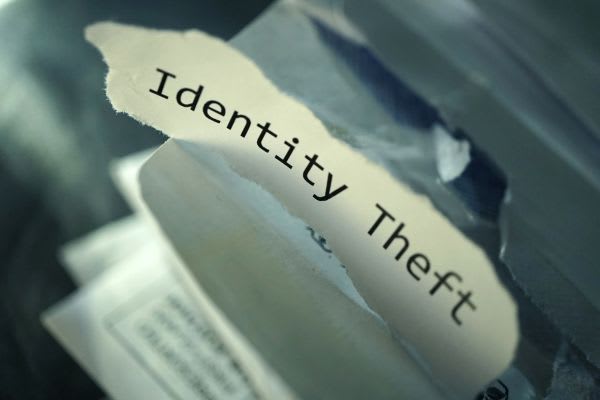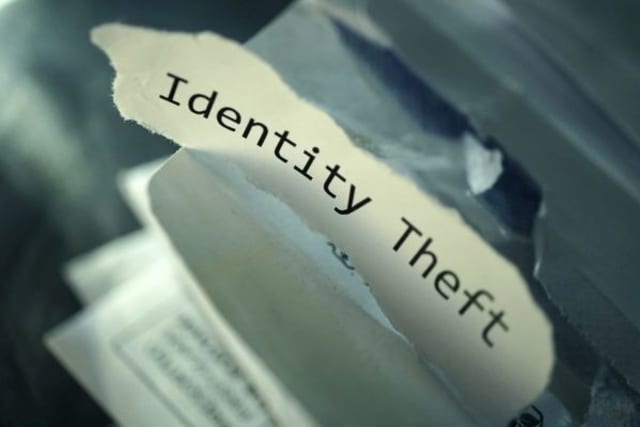When personal information is stolen and used for fraudulent purposes, the consequences can be devastating. One of the most harmful forms of fraud is tax identity theft. This crime not only delays a taxpayer’s tax refund, but it can also cause long-term issues with a person’s credit report, financial stability, and confidence in the systems designed to protect them.
Because of the complexity of these cases, working with an identity theft attorney can make a significant difference. An attorney can step in to communicate with the IRS, help file the necessary documents, such as an Identity Theft Affidavit, and dispute fraudulent activity on a credit report. Legal guidance also provides peace of mind when dealing with multiple agencies, from the IRS to the credit bureaus.
Understanding how tax identity theft occurs is the first step to preventing and fighting back against it. The following guide explains how this crime happens, the warning signs to watch for, and the steps that can be taken to protect yourself.

What Is Tax Identity Theft?
Tax-related identity theft occurs when criminals use someone else’s Social Security number, Taxpayer Identification Number, or even the information of deceased persons to file fraudulent tax returns. The goal is usually to steal a refund or claim credits, such as the Earned Income Tax Credit or education credits on Form 8863.
The Internal Revenue Service (IRS) identifies this as a growing problem, costing taxpayers and the government billions of dollars each year. Victims often only discover the issue when attempting to file legitimate tax returns and receive notice that a return has already been filed in their name. In other cases, individuals may learn about the fraud when contacted by the IRS regarding wages they never earned or debts they do not owe.
Working with an experienced identity theft lawyer can help victims take control of the situation, file the right forms, and push back against fraudulent activity.
How Can Tax Identity Theft Occur?
Identity thieves use a variety of methods to obtain sensitive data. Some of the most common include:
- Data Breaches and Compromised Records– Widespread data breaches at retailers, financial institutions, health care providers, or tax preparation services can expose Social Security numbers, driver’s license information, and other identifying details. Once exposed, this data may be sold online and later used in tax scams. Even a single breach of an online account can provide criminals with enough information to commit refund fraud.
- Phishing Emails and Fake Websites– Fraudsters frequently send phishing emails designed to appear as if they are from the IRS, employers, or reputable tax preparation software companies. These emails often contain urgent warnings or threats, tricking recipients into entering personal details on phony websites. Once entered, information such as bank account numbers, PIN numbers, and login credentials is stolen and used for fraudulent tax returns.
- Stolen Mail and Tax Documents– Physical theft remains a simple but effective method. W-2 forms, 1099 forms, and other tax documents can be stolen directly from mailboxes or trash bins if not shredded. Likewise, carrying a Social Security card in a wallet or leaving a driver’s license unsecured can provide easy access for criminals.
- Public Wi-Fi and Online Accounts– Unsecured public Wi-Fi networks are common targets for hackers. Without safeguards like two-step authentication or antivirus protections, criminals can intercept sensitive data while individuals check emails, log into tax preparation software, or submit tax records online.
- Social Media Oversharing– Oversharing on social media accounts can give criminals enough information to build a complete profile. Something as simple as posting a child’s school, a pet’s name, or a parent’s maiden name can help thieves guess security questions or reconstruct missing details.

Warning Signs of Tax Identity Theft
Recognizing the problem early can make recovery easier. Some of the most common warning signs include:
- Receiving a notice from the IRS stating that a return has already been filed under the taxpayer’s Social Security number.
- IRS notifications about income tax owed on wages the taxpayer never earned.
- A CP2000 series notice claiming unreported income from unfamiliar employers.
- Delays in refund processing without a clear explanation.
- Rejection of an e-filed return due to duplicate filings.
- IRS requests for Identity and Tax Return Verification Service steps when no suspicious filing was made by the taxpayer.
- Unexplained accounts or loans appearing on a credit report.
- Receiving identity theft complaints or debt collection calls related to unfamiliar accounts.
What to Do if You’re a Victim
If tax identity theft is suspected, taking immediate action is crucial:
Report Identity Theft
File a police report to create an official record. Next, submit an Identity Theft Affidavit using IRS Form 14039 or Form 14039-B. This alerts the IRS to block the fraudulent return and flag the account for additional security.
Contact the Federal Trade Commission
The Federal Trade Commission (FTC) operates a nationwide database for identity theft. Filing a report creates a recovery plan and provides victims with step-by-step instructions on next actions.
Notify Credit Bureaus and Monitor Credit
Contact the three major credit bureaus to place a fraud alert or request a credit freeze. Regular monitoring of credit reports can reveal new accounts or suspicious inquiries. Credit monitoring services can also provide real-time alerts of unusual activity.
Learn More: How to Fix Credit Report Errors
Work With the IRS Directly
The IRS has specialized departments, such as the Taxpayer Protection Program, that focus on these cases. Victims may need to visit a Taxpayer Assistance Center with proof of identity or seek help from the Taxpayer Advocate Service if their case is particularly complex.
Secure Financial Accounts
Change all account passwords and enable multifactor authentication wherever possible. Update anti-virus software, avoid conducting financial activity on public Wi-Fi, and monitor credit card statements and bank account numbers for suspicious charges or wire transfers.
Tips to Prevent Tax Identity Theft
Taking steps to prevent identity theft is one of the most effective ways to reduce the risk of becoming a victim. Here are some practical measures to keep in mind:

Safeguard Key Documents
- Keep the Social Security card stored in a secure location and never carry it in a wallet.
- Shred old tax documents, W-2 forms, and 1099 forms before disposal.
- Collect mail promptly, and consider using a locked mailbox to reduce the risk of theft.
Strengthen Digital Security
- Apply for and use an Identity Protection PIN (IP PIN) from the IRS to block fraudulent tax returns.
- Keep tax preparation software updated with the latest security patches.
- Enable two-factor authentication, login approval, or multifactor authentication on financial accounts and tax filing platforms.
- Protect devices with current antivirus protections and avoid using public Wi-Fi for sensitive tasks.
Be Cautious Online
- Limit the amount of personal information shared on social media accounts.
- Review credit reports regularly to spot any compromised personal information early.
- Avoid clicking on links or downloading attachments from unsolicited messages that may be phishing scams.
- Use only verified tax preparation services and secure websites when filing.
Why Legal Guidance Matters
Although government agencies assist, victims often struggle with the process. Tax identity theft cases can involve multiple agencies, from the IRS and the Federal Trade Commission to credit bureaus and even state tax authorities. Navigating the paperwork, deadlines, and follow-ups can quickly become overwhelming.
Attorneys experienced in handling identity theft complaints provide crucial support by:
- Ensuring that all required forms are filed correctly, including IRS Form 14039.
- Communicating with the IRS and state authorities on behalf of the victim.
- Assisting with disputes to remove fraudulent accounts from a credit report.
- Advising on options such as a credit freeze, fraud alert, or ongoing credit monitoring.
- Helping victims document losses and, when appropriate, pursue remedies for damages caused by compromised personal information.
The involvement of legal counsel can significantly reduce stress and increase the likelihood of a successful resolution.

Final Thoughts
Millions of Americans experience tax identity theft each year. Knowing how tax identity theft occurs and taking proactive steps toward identity protection can reduce the risks and consequences. Even with strong prevention measures, no system is entirely foolproof, which is why swift action matters if suspicious activity is detected.
Those who believe their personal information has been compromised or who have received notice of fraudulent tax returns should act immediately. With timely intervention and professional guidance, it is possible to stop the fraud, restore financial stability, and move forward with confidence.
Fair Credit Attorneys provides legal support to victims of identity theft across Illinois. Contact the firm today at (866) 381-6444 to schedule a free consultation and take the first step toward protecting your future.
Frequently Asked Questions
Here are some of the most frequently asked questions regarding tax identity theft:
How can a tax identity theft occur?
Tax identity theft happens when criminals get access to personal information such as a Social Security number or Taxpayer Identification Number. They may use data breaches, phishing scams, stolen mail, or hacked online accounts to file fraudulent tax returns and steal refunds.
How can I see if someone filed taxes in my name?
The IRS may notify you that a return has already been filed, or your own tax return may be rejected as a duplicate. You can also check your online IRS account for suspicious filings. If you suspect fraud, file IRS Form 14039 and contact the IRS.
What can someone do with my tax ID number?
With a stolen tax ID number, thieves can file false returns, commit refund fraud, or link it to other stolen data to open accounts or create debts in your name. Protect yourself with credit monitoring, fraud alerts, and legal help if needed.



